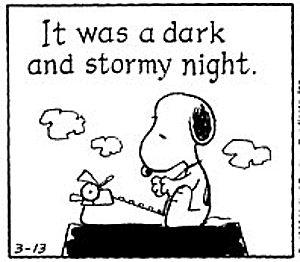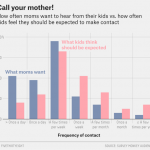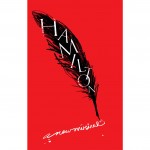If you’re coming here from Conversion Diary, you may be interested in yesterday’s post “Checking My Biases” which is a direct response to Jen’s “First You Must Be Willing To Lose it All” post.
I’ve been a little delinquent about posting 7 Quick Takes for the past few weeks, so I’ve picked a topic I know I can get excited about and it’s time to clear out my cache of literature and language related links.
And in fun offline book news, I found a sci-fi book club in DC! I’ll be reading Asimov’s The Caves of Steel for September. On to the links.
A good first stop would the Test Your Vocab quiz which estimates the total size of your vocabulary. I found through TYWKIWDBI (Things You Wouldn’t Know If We Didn’t Blog Intermittently). If you’re in a competitive mood, I scored 38,800, but the real fun is looking up some of the strange words you missed and then checking out the graphs they’ve done of their results.
And if you’re a general sucker for good data visualization of unusual datasets, you should already be following the OkCupid blog (a dating website that shows you the results of their data mining).
During my Quick Takes drought, I somehow let the announcement of the Bulwer-Lytton award winners slip by without comment. Edward George Bulwer-Lytton wrote the infamous opening “It was a dark and stormy night” in his novel Paul Clifford, and, every year, contestants work to come up with worse opening lines. The winners are at the link, but I’m sharing Bulwer-Lytton’s full first sentence below (the famous phrase is only the first clause).
“It was a dark and stormy night; the rain fell in torrents–except at occasional intervals, when it was checked by a violent gust of wind which swept up the streets (for it is in London that our scene lies), rattling along the housetops, and fiercely agitating the scanty flame of the lamps that struggled against the darkness.
Well, whaddya know. In the course of googling to find the Snoopy picture above, I discovered there are two Bulwer-Lytton contests. The Lyttle Lytton contest works just the same way, except contestants are subject to a maximum word cap, which strikes me as a good idea. The 2011 winners are up over there, too, and here’s my favorite:
A wind was blowing from east to west, as if it were the sun, blowing instead of shining.
The Little Lytton contest also awards prizes for bad opening and closing sentences found in the wild.
Andrew Sullivan of The Daily Dish made up a list of words with no English equivalent. Schadenfreude is perhaps the best known of these, but perhaps you’ll help me popularize the following?
- The Spanish-Mexican word “Tocayo.” It is only used by people with the same name. So that one person named Ricardo might call another person named Ricardo “Tocayo.”
- The German “doch”. It simply means yes, but to a negative question. For example, the question, “You aren’t going?” in English. If you answer “yes”, it is ambiguous (“yes, you aren’t going”, or “yes, you are going”). Doch removes that ambiguity. It always means (in this case), “Yes, you are going”.
And, yes, the obligatory Avenue Q video is below:
I’m a steampunk aficionado, but even I think the person who came up with the term ‘Mannerpunk‘ ought to go have a bit of a quiet lie down til s/he gets over it. According to Wikipedia, the term applies to comedies of manners set in a fantasy world, which I’m all in favor of, but either the name’s got to go, or the wikipedia page needs some illustrations of mannerpunk costuming.
If you can’t be bothered to cosplay, I can’t be bothered to care.
And, finally, I’ll close with a reference to that book (I am still trying to keep up with the King and I project, though I fell behind in Psalms). I found Jim LePage’s Word project — an original illustration/interpretation of each book of the Bible — on First Things, and I’ve shared my favorite below.
[Seven Quick Takes is a blog carnival run by Jen of Conversion Diary]
















